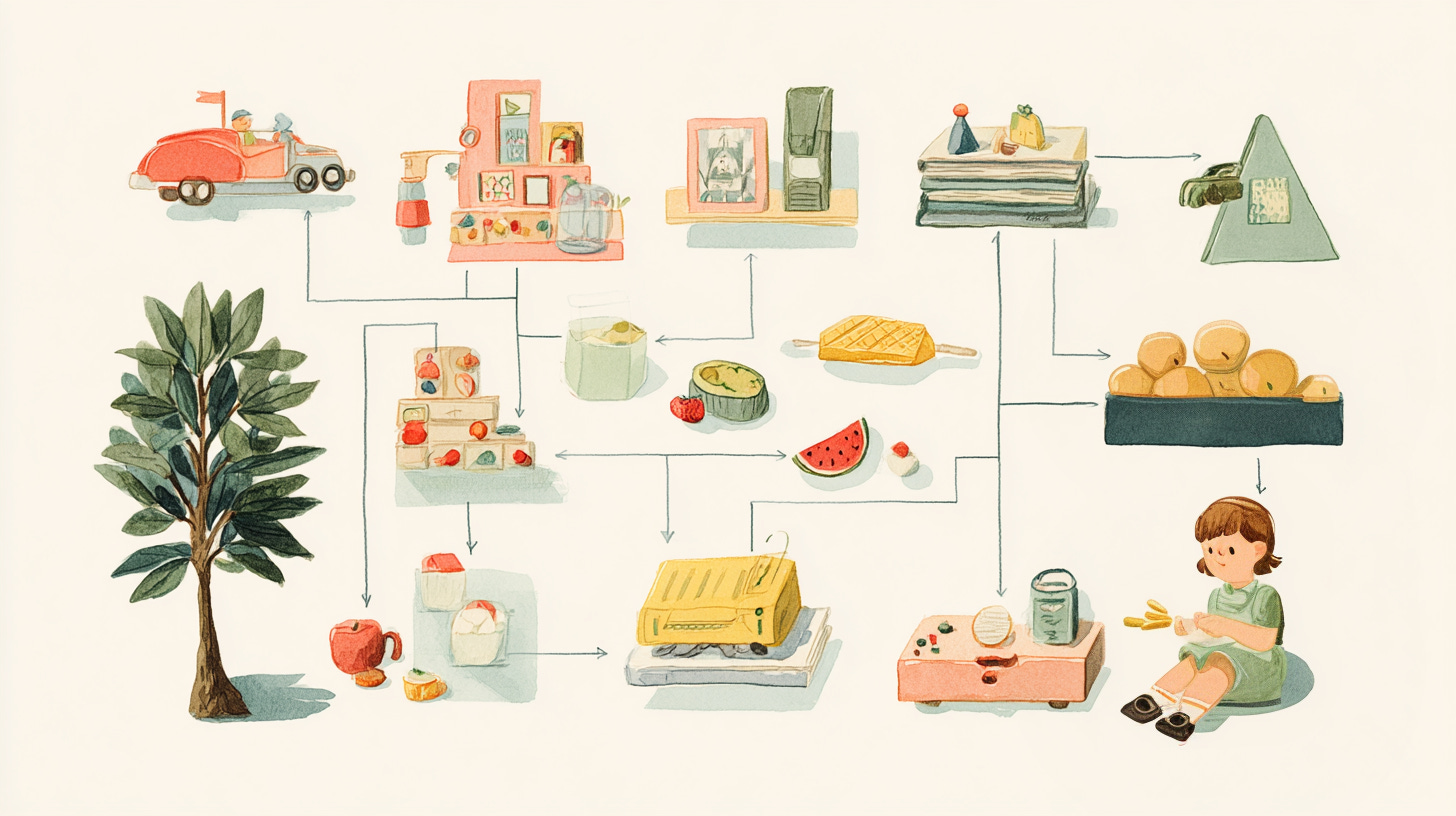How Toddler Negotiations Teach If-Then Statements
Toddlers observe a lot more than we give them credit for. For example: conditions for getting just what they want.
My 2-year-old is a better negotiator than most lawyers (probably). He’s also accidentally learning programming logic.
“If I eat meatball, then I can have more blueberries?”
Conditional statements come naturally at mealtimes. He doesn’t know it yet, but he’s programming me.
The Daily Algorithms
Every toddler negotiation follows programming logic:
The Basic If-Then
“If I put on my shoes, then we go outside?”
Classic conditional. Input (shoes) leads to output (park). He’s learning cause and effect aren’t just natural laws—they’re negotiable parameters.
The AND Operator
“If I brush teeth AND pick up toys, then two stories?”
Multiple conditions! He’s combining requirements.
“If I lay down AND be quiet AND close my eyes, then another story?”
That’s a three-condition function.
The OR Logic
“I wear the dinosaur shirt OR the truck shirt?”
He’s presenting options, understanding that either input produces the desired output (getting dressed). Then he levels up: “If dinosaur shirt, then green pants. If truck shirt, then blue pants.”
Different inputs, different outputs. That’s programming.
The Edge Cases
My favorite is when he finds the bugs in our parent logic:
Me: “If you don’t eat your fish, then you can’t have more crackers.”
Him: doesn’t eat fish
Him: “I don’t want more crackers. I want melon.”
He found the loophole. Our conditional didn’t account for his ability to reject the entire premise. That’s debugging.
Or this one:
Me: “If you eat your fish, then you can have melon.”
Him: takes one bite of fish
Him: “May I have melon now, please.”
One bite of fish for a bowl of melon? That’s optimization.
Why This Matters
These aren’t cute moments that vaguely relate to programming. This IS programming. He’s learning:
Conditional logic: If X then Y
Boolean operators: AND, OR, NOT
Variables: Different inputs produce different outputs
Edge cases: What happens when assumptions break
Debugging: Finding flaws in logic
Optimization: Maximum reward for minimum effort
Every negotiation is a program he’s writing in real-time.
The Magic Question
When he negotiates, I’ve started asking: “What’s your if-then?”
“If I drink water, then we go outside.”
“If I get dressed, then we play GCompris.”
“If I lay down, then Mama sings Twinkle Twinkle Little Star.”
He’s getting explicit about his logic. He’s learning that clear conditions lead to predictable outcomes.
Your Turn
Tomorrow, when your toddler starts negotiating, listen for the logic:
What conditions are they setting?
What operators are they using?
Where are the edge cases?
Talk through each point (in toddler terms) and make them explicit. Then try this: “Okay, if we do that, then what do you want to happen?”
Watch them think. Watch them structure their argument. Watch them debug their own logic when it doesn’t work.
They’re not just negotiating. They’re programming.
When we teach them to think in if-thens, we're teaching them to think clearly about cause and effect, actions and consequences, effort and reward. That's not just coding. That's life.
This morning: "If I hug, then Mama is happy.” Yes, buddy. That program runs perfectly every time. What's your favorite toddler if-then that just melts you?




